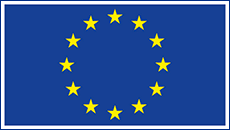“The new NGO Law simplifies some provision for the non-governmental organizations not allowing NGOs to create dysfunctional bodies and show what they do not have. President of the Armenian Lawyers’ Association, “Commitment to Constructive Dialogue” Project Manager Karen Zadoyan said today at a regular training on the new law “On NGOs”. ” There is no need to create unnecessary bodies, you can adopt simple approaches and go ahead,” the speaker said.
The new law has also brought new insights, in particular the institute of beneficiaries. “The new law proposes to regulate the beneficiaries of the organization, I advise to involved beneficiary groups in the organization,” Mr. Zadoyan said and reminded that currently the State Revenue Committee, the State Authorized Body is instead of the Ministry of Justice, which is guided by its approaches. “According to the Law on Profit Tax, NGOs are subjects. There is a provision that gratuitous assets including the membership fees are not considered revenue and expenditures. But there is nothing said about grants. That is, the grant is not fully recognized as a gratuitous asset. Grant component, under which services are provided to the third parties, in our opinion to beneficiaries, and in the opinion of SRC to the third parties, are taxed as profit tax,” Mr. Zadoyan said and advised to describe the beneficiary groups, which will allow avoiding unpleasant surprises.
It should be noted that this event took place with the support of “Pyunik” Charity NGO, at their office.
“The major part of the problems of people with disabilities is inherited from the Soviet Union. These include accessibility issues, we have inherited a non-accessible environment, there are problems with social protection,” Mr. Hakob Abrahamyan, President of “Pyunik” NGO said. The organization has started a dialogue with state bodies, in particular with the Yerevan Municipality, to resolve these issues. “Our dialogue with the municipality is really constructive. Our organization’s policy is really constructive, we are for cooperating with state structures and help them to solve this or that problem. It is more correct to do so than to stand aside and declare that this or that is missing,” Mr. Abrahamyan said.
The problems of people with disabilities are exacerbated in regions. According to Margarit Sedrakyan, representative of “Huysi Metsamor” (“Hope Metsamor”) NGO, problems are related to education as well as to transport and other spheres. “It is difficult for us to find a solution, we apply to the community, apply to the regional administration, but in reality we need a state approach so that the needs of the individual are appreciated and he does not always apply to any body with a request.”
“From year to year, the state’s attitude towards people with disabilities changes, but the progress is slow,” Head of “Unison” NGO Armen Alaverdyan thinks. “The attitude changes very slowly. We may say that it has changed to positive by 99 percent. No one will deny that there are rights of persons with disabilities that are equal to the rights of others, and also there are problems that are unresolved. But in many cases it is of a formal character. In many cases you feel that the official is not inclined to give a solution, or these issues are highlighted once or twice a year: on December 3, on the International Day of Disabled Persons or on another occasion,” Mr. Alaverdyan said.
Speaking of today’s training, Armen Alaverdyan noted that such meetings are extremely important for NGOs. “The knowledge was very new, today’s training surpassed my expectations, I was expecting useful information, but I learned more than I thought,” the NGO head said.
The “Commitment to Constructive Dialogue” Project is implemented with the financial support of the European Union by the “Armenian Lawyers’ Association” NGO in cooperation with its partners; Agora Central Europe o.p.s (an NGO from the Czech Republic), Armenian Center for Democratic Education-CIVITAS, “International Center for Human Development” Public Organization, SME Cooperation Association and Union of Communities of Armenia.
G.T.
A.S.


